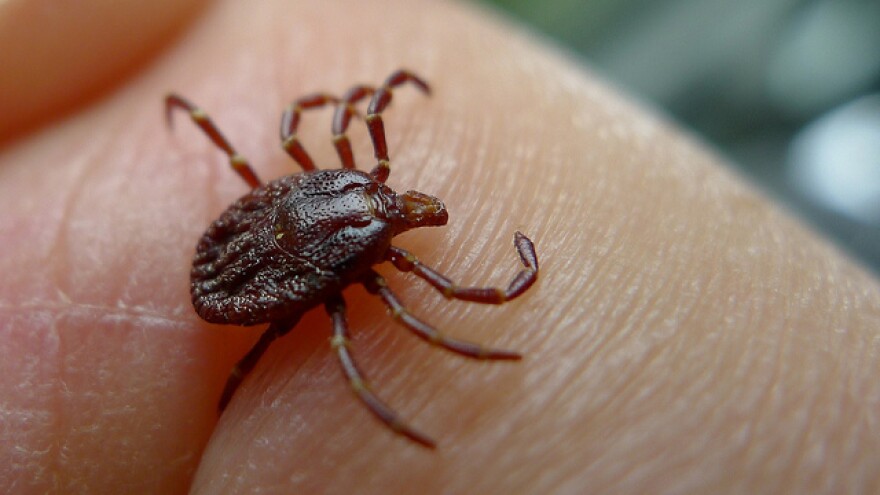Lyme disease is no longer just a risk for those “outdoorsy” people. Now if you’re gardening, playing in the backyard or outside at all, you can be at risk for Lyme disease. This week on “Take Care,” we talk to Dr. Cynthia Morrow, Onondaga County Health Commissioner, about the increased risk of Lyme disease in the area.
Click "Read More" to hear our interview with Dr. Cynthia Morrow.
Lyme disease is a tricky disease that was not commonly found in central New York 10 years ago, but is now part of the region. The treatable disease is a bacterial infection that starts off in field mice. Field mice then infect deer ticks, which go on to infect mammals like deer, dogs, cats and people. The ticks themselves are about the size of a freckle and can be found in tall grass, leaf litter and stacks of damp wood, Dr. Morrow said.
“Unfortunately now it is part of our ecology and it is here to stay,” she said, adding the Health Department sweeps wooded areas, like Green Lakes National Park, to try and keep the ticks at bay.
For humans, the first symptoms of Lyme disease are flu-like. Then people develop a distinctive bull’s-eye shaped rash at the site of infection. Dr. Morrow says when these signs appear, it’s important to go to a doctor to get the disease under control with antibiotics. Many people don’t notice the symptoms right away, she said, and many blood tests may start off negative.
While blood tests may not be accurate right away, primary care providers are capable of diagnosing Lyme disease without it. Dr. Morrow says the disease can go for weeks untreated, meaning that the symptoms will only worsen. Starting antibiotics right away and maybe even consulting with an infectious disease specialist is a must.
Your pet can increase your risk of getting Lyme disease. A deer tick might make its way into your home by latching on to a dog or a cat and then biting onto you -- although this is not as big a risk as extensive outdoor activity, like hiking.
In order to prevent Lyme disease from infecting your home, Dr. Morrow suggests these tips to keep your home healthy:
- Wear long pants: longer pants reduce the area of skin available for a tick to bite on to.
- Use tick repellant: this repellant will keep ticks away from your skin.
- Take a shower right away after being outside: if any ticks do in fact latch on to you, the best thing you can do is wash it off.
- Do a tick check: take turns with a partner checking each other for ticks.
- Clean up your leaf litter: getting rid of their homes will help get them out of your area.
- Cut your grass short: deer ticks also live in tall grass, so the shorter you cut it, the less places they will have to hide.





